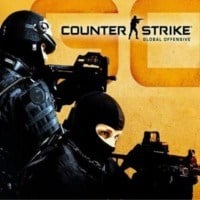CS:GO Cheaters Can Get Away With Almost Anything it Seems [UPDATED]
Despite Valve's best efforts to weed out cheaters in CS:GO, it seems that trying to catch up is the best the company can manage. As one Reddit user has shown, changes to anticheat are necessary.
![CS:GO Cheaters Can Get Away With Almost Anything it Seems [UPDATED].](https://cdn.gracza.pl/i_gp/h/22/357236050.jpg)
Update:
A post has appeared on CS:GO's official Twitter account, announcing that Trust has been fixed:
Original message:
- A Reddit user posted a video showing the ineffectiveness of anticheat in CS:GO;
- From the video we can learn about the lack of effectiveness of systems such as VAC or Overwatch;
- Among the solutions suggested by players, the need for dialogue with the community is cited each time.
Cheaters, the scourge of all digital entertainment, do not spare Counter-Strike: Global Offensive. Despite a well-developed system of reporting and detecting cheaters, forums are full of posts complaining about the prevalence of cheating in Valve's FPS. And this problem seems to be growing lately. One Reddit user came to this conclusion, stating simply: "CS:GO matchmaking is being overrun by cheaters". In a five-minute video, the player demonstrates the extent of the problem through his own experiences, as well as some interesting and sobering data.
One of the common arguments used to explain the frequent unpleasant interactions with cheaters is the so-called trust factor, which affects who the server will match you with in a tournament match. In other words, the lower our trust factor is, the more likely we are to run into a cheater. Valve doesn't specify what makes up this rating, but as the developers say, to have a high trust factor you should: "be a friendly member of the CS:GO and Steam communities". It is also known that accounts with Prime status expect a better rating. The proper functioning of the trust factor is being questioned, however, and Valve is not giving any information as to whether it is effective.
CS:GO gives the community the ability to judge suspicious behavior through the Overwatch option, in which players analyze fragments of matches with possible cheating cases and render a verdict that could lead to a cheater being banned from the game. However, as one of the developers, John McDonald, admitted in 2018 - "the detection rate of cheaters with this method is between 15 and 30 percent". (via Cybersport [in Polish]). Moreover, the cheater communities themselves admit that CS:GO's Overwatch does them virtually no harm.
Another way to rid Counter-Strike of cheaters is the notorious Valve Anti-Cheat (VAC), which takes care of automatically bans using its algorithms. A verdict issued by VAC is non-negotiable and permanent for the Steam account in question, but even that doesn't seem to be enough. In theory, in 2018, work was undertaken to improve anticheat - the VACnet system was implemented, which was supposed to learn the behavior of players and recognize what cheats look like. How does the situation look currently? We do not know - Valve does not inform us in any way about the effects of this work. The community seems to be frustrated with the current state of affairs:
"Man there must be some way to reach to the devs or something because it's getting really bad. I never in my 6 years of playing this game experienced cheating on this scale. Just today I played against 3 spinboters in a row. This needs to be noticed now," writes Trimurtidev.
"Yep, its been horrible lately. An insane amount of cheaters for some reason. Even on DMG (Distinguished Master Guardian rank in CS:GO - ed. note), 2 (possibly 3) of my 8 recent matches had cheaters in them (incredibly blatant when watching demo, clear wallhacks. Not sure about the third one but he was most likely cheating too). I don't think its ever been this bad before," admits user yar 2000.
Players agree - the situation is bad, and Valve seems to be taking the problem lightly. The forums are full of solutions, but the one common denominator among them is that developers need to work with the community and rely on interaction instead of its imitation.
0

Author: Michal Ciezadlik
Joined GRYOnline.pl in December 2020 and has remained loyal to the Newsroom ever since, although he also collaborated with Friendly Fire, where he covered TikTok. A semi-professional musician, whose interest began already in childhood. He is studying journalism and took his first steps in radio, but didn't stay there for long. Prefers multiplayer; he has spent over 1100 hours in CS:GO and probably twice as much in League of Legends. Nevertheless, won't decline a good, single-player game either.
Latest News
- 12 million players are celebrating, but not everyone will get a gift. ARC Raiders devs give away pickaxes and bans
- Cyberpunk 2077 creator explains why male V suddenly disappeared from ads
- Court sides with GTA 6 devs. Former Rockstar Games employees suffer a painful blow in their fight for money
- 2 Xbox Game Pass games. Star Wars: Outlaws comes with a newly released zombie apocalypse simulator
- „Bloodborne is a special game for me.” Dark Souls father's honest declaration is painful and hopeless, but true


